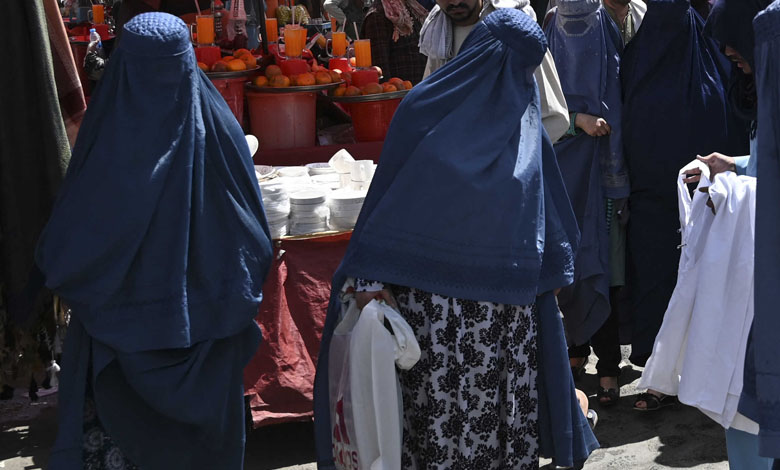Taliban continue to impose strict restrictions on women – Details

Since the return of the movement to power in August 2021, women in Afghanistan have been subjected to severe restrictions, including on their education, movement, clothing, and work. In an emphasis on these measures, the Ministry of Ethics of the Taliban movement announced new restrictions on the entry of women to public parks, to the point that Afghan women were prevented from entering parks in Kabul on Wednesday.
A spokesperson for the Ministry of Prayer, Guidance, Promotion of Virtue and Prevention of Vice confirmed that women’s access to parks would be restricted in response to a question from Reuters, but he did not respond to requests for more details.
The Taliban government has not made clear on the scope of application of the decision or its impact on an earlier decision by the ministry that stipulates gender segregation in parks, including open areas, and that specific days will be reserved for women.
Earlier, the U.S. special envoy to Afghanistan expressed deep concern about the Taliban’s policies on women and girls, calling them “an affront to human rights” and negatively affecting its relations with the international community.
“I join Afghans around the country and colleagues around the world in expressing deep concern over the Taliban’s recent policies that undermine the rights of women and girls,” Thomas West, the US special envoy to Afghanistan, said on Twitter.
“These policies include the ongoing banning of girls from secondary education and employment, restrictions on freedom of movement, and the targeting of peaceful protesters,” said West.
Human Rights Watch has said that the Taliban have violated numerous commitments to respect human rights and women’s rights since they took control of Afghanistan a year ago, following the capture of Kabul on August 15, 2021. The Taliban authorities have severely restricted the rights of women and girls, repressed the media, arbitrarily detained, tortured, and summarily executed critics and presumed opponents, among other violations.
The rights group also stressed that the human rights violations by the Taliban have drawn widespread condemnation and have jeopardized international efforts to address the dire humanitarian situation in the country.
Since the extremist movement took control of Kabul last year, the Taliban have imposed severe restrictions on women and girls in line with their strict interpretation of Islamic law, barring teenage girls from pursuing secondary school education, forcing female government employees to quit their jobs and preventing women from traveling alone.
In May, Afghanistan’s Supreme Leader and Taliban leader Haibatullah Akhundzada ordered women to cover their faces in public. The movement also required television broadcasters to wear the niqab on screen, but a number of them initially defied the decision and showed their faces uncovered.
Many Afghan women resisted Taliban restrictions and took to the streets demanding the right to education and work. Militants soon suppressed the gatherings and arrested their leaders, detaining them in secret. The movement denied that they had been arrested, and most remained silent since their release.












